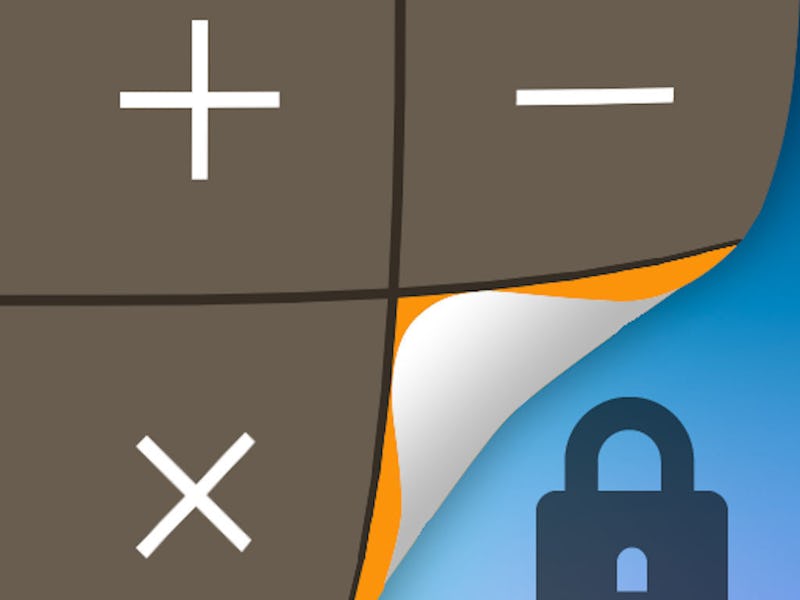Your Guide to Photo Vault Apps
It's hard to justify phony calculator apps as anything but nefarious.

Over the weekend, scandal continued to surround the small town of Cañon City, Colorado after students at Cañon City High School were busted for sending nude photos of themselves and others throughout the school and storing them on so-called “vault apps” that keep the files hidden from plain view.
While it’s going to be very messy for officials to determine what charges to file — the circulated photos were largely of minors, but those sending them were also underage, making claims of child pornography distribution murky.
It’s actually astoundingly easy to get the apps on which participants were keeping the photos. They’re called “vault apps” and many of them are free.
Depending on the quality, the apps work by locking your private photos behind a password or possibly even encrypting them. The password prevents others in your life from accessing the photos. The encryption actually disguises the photo files by turning normal-sounding file names (plaintext) into randomized nonsense (ciphertext). So, if encrypted, a file such as “mysecretpixxx.jpg” will instead appear as a ridiculous sequence, if accessed remotely.
Some apps appear to be more effective than others, and many prize surface-level deception over tech-savvy hiding techniques.
Private Photo Vault
Classy folder, Private Photo Vault Pro.
Private Photo Vault is the first entry that comes up in the App Store (which must be great for business given the recent boost in notoriety). It’s available for free, but there’s also a Pro version for $3.99. The app locks your private photos behind a PIN, and the sample screenshot even shows a folder called “Ex-girlfriends.” Nothing like not-so-subtly condoning revenge porn!
Recommended purchase for assholes.
Secret Photo & Video Calculator
Secret Photo & Video Calculator has beautiful typography.
Several apps offer decoy screens to throw would-be do-gooders off your case. The calculator is a popular false front. Secret Photo & Video Calculator, which is free, lets you enter your pin as a number in the calculator. You can also browse the internet privately on the app, and even leave private notes for yourself in pretty fonts. Oh, and it’s a functioning calculator.
Secret Piano Icon
You can play the piano on Secret Piano Icon when you're bored of storing others' photos.
When your first app gets busted, try the free Secret Piano Icon. You just play a little ditty and reveal your secrets. It comes with an in-app decoy mode, too, which reveals uninteresting, likely legal photos, just in case you’re required to show someone.
Private Photo (Calculator%)
Those guys just keep trying to break into your Private Photo (Calculator%)!
Many vault apps, such as Private Photo (Calculator%) come with “intruder alert” options. This app even tells you who tried to log in, as well as when and where. Because there’s nothing like knowing when someone is trying to steal your stolen property!
Securepad
Securepad actually doesn't look too skeevy.
Securepad has a much simpler display than its competitors. The app encrypts your data and uploads it to iCloud, as well. Ironically, its straightforward approach makes it appear useful for people with sensitive information, not just 16-year-olds hiding pics from their ‘rents.
Most vault apps come with a 17+ restriction, as a lazy way to prevent minors from abusing them. In the wake of the Cañon City High School scandal, however, the App Store may need to be more vigilant in restricting access. Unfortunately, that monitoring will really need to be done by parents.
As far as the industry is concerned, app developers could maybe take some cues from Securepad. There are benefits to photo encryption. A professional photographer, for example, may snap some shots on her iPhone that she wants to save for later use. It’s hard to justify phony calculator apps as anything but nefarious, but iCloud potentially indicates a level of legitimacy that the industry may want to emulate.